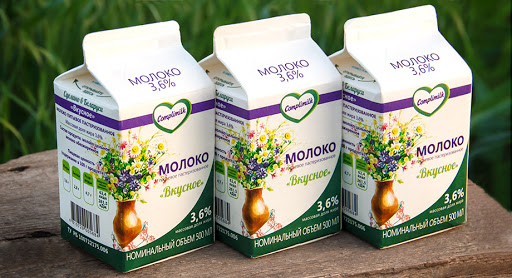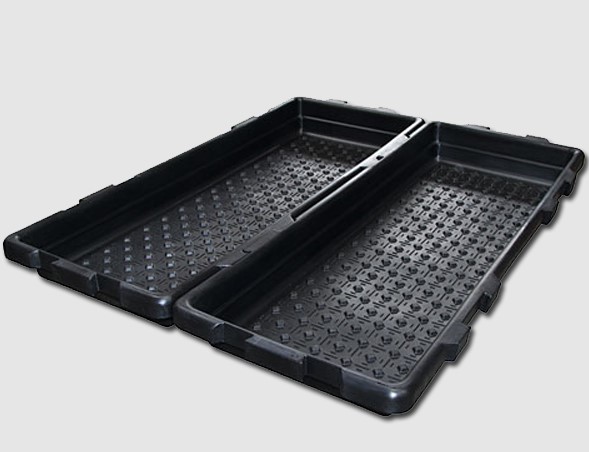In Britain, Russians were accused of fishing off the Faroe Islands in violation of sanctions
Russian fishermen are fishing off the coast of the Faroe Islands, including on British sites, bypassing sanctions, writes the Daily Express. The publication reports that five Russian fishing vessels were in the ports of the autonomous region of Denmark last week.
The reason for the publication was a joint appeal to the British government by the leaders of the Scottish Sea Fishermen's Association and the Shetland Islands Fishermen's Association, who were indignant that the authorities of the Faroe Islands and Norway had introduced large catch quotas for Russians. The Faroe Islands are located in the Atlantic Ocean, 200 nautical miles north of the coast of Scotland. Scottish fishermen use the areas for fishing, which are allocated to Britain by local authorities. Some of these areas, by agreement with the authorities of the autonomy, are also used by the Russians.
In their appeal, the heads of the associations, Jan Gatt and Simon Collins, said that the government of the Faroe Islands last year gave RUSSIA an unacceptably large 13,000 tons quota for mackerel fishing, but this year it has retained it. They also believe that the Russians will not be able to catch such an amount of mackerel, and the size of the quota threatens the population of this fish. The fishermen urged the British government to take measures to deprive ships from third countries of access to the waters assigned to Britain.
Trutnev explained Japan's ban on fishing near the Kuril Islands Politics
Gatt told the Daily Express that Scottish fishermen are unhappy that the Russians are catching blue whiting off the Faroe Islands and have a quota of 75,000 tons this year. At the same time, Britain can only catch about 59,000 T. According to Gatt, local authorities should not allow Russian vessels to fish "not only in the waters of the Faroe Islands, but also in British waters."
“We call on the British government to put pressure on the Faroe authorities and do it now,” said the HEAD of the association.
In 1999, Britain and the Faroe Islands entered into an agreement on the joint use of areas for catching marine resources.
Read on RBC Pro Pro Import substitution software and not burn out: tips,that will help save staff Instructions Pro What is capital amnesty and why cryptocurrency owners need it ArticlesPro How to bargain with the Chinese - the secrets of negotiations Articles Pro Coinbase shares collapsed after the crypto.Should I buy them on a drawdown Predictions Pro Dedollarization:what will happen to foreign currency and how to save it Pro Articles Is it true,that you can catch a cold under air conditioning Articles Pro Market collapse: what Buffett, Kiyosaki,Rogers and other gurus Articles Pro Conscience asks uncomfortable questions: how to manage finances in a crisishow to manage finances in a crisishow to manage finances in a crisishow to manage finances in a crisishow to manage finances in a crisishow to manage finances in a crisishow to manage finances in a crisishow to manage finances in a crisishow to manage finances in a crisisUlla Wang, senior adviser to the Faroese Fisheries Ministry, said that Russian vessels had not entered British sites in the fishing area since April but could return in December. She noted that the agreement with Russia on fishing is extremely important for the autonomous region, Russia accounts for almost a quarter of all exports of the territory.
Wang did not rule out that the authorities could renegotiate the agreement with Russia, removing from it the clauses on the possibility of using the areas allocated to Britain, but noted that this could either lead to a decrease in the area open for fishing, or to changes in maritime borders with Britain.
“I’m not sure that the UK wants this,” the ministry spokeswoman said, adding that local authorities would be extremely reluctant to change the terms of the agreement with Russia.
See also EU announced six proposals for a new package of sanctions against Russia 01:06
A source in the British government told the Daily Express that London is extremely concerned that Russia is fishing in special zones off the Faroe Islands, and the UK authorities have explained this in detail to the local government. “We categorically do not allow Russian-flagged vessels to fish in UK waters and continue to urge the Faroe Islands to follow our example and ban fishing,” the source said.
The Daily Express reports that the Russian ships Yantarny and Arktika were in the port of the capital of the region Torshavn a few days ago, and the cargo ship Tigr-2 and the trawlers Mekhanik Sergey Agapov and Kapitan Sulimov were moored in the port of Runavik . “The ships were fully serviced and refueled in the Faroe Islands, and the catch was offloaded onto cargo ships, some of which went to markets in Africa,” the newspaper writes.
The newspaper believes that the authorities of the autonomy and the inhabitants of the islands oppose the tightening of restrictions on Russia, as this could lead to damage to them. Good relations with Russia are important for the islands of 58,000 as the Faroe Islands want to maintain access to the highly profitable cod fishery in the Russian areas of the Barents Sea, writes the Daily Express.
UK Fish & Chips restaurants to ask Norway for fish due to sanctions Business
“Until February, we had very close relations with Russia, at least 25% of our exports went to Russia. Now it has stopped. It [exports] is zero because of the sanctions. We have a fishing agreement with Russia that is valid until the end of the year. And the government does not want to terminate it, ”the newspaper quotes the deputy from the Faroe Islands in the Danish parliament, Shurdur Skaale.
From the end of February, Great Britain began to tighten sanctions against Russia, one of the measures was a ban on entry into British waters and ports of Russian ships, their maintenance and insurance, introduced on March 1.
The parliament of the autonomy adopted its own law on sanctions against Russia on May 10: it was required because the Faroe Islands are not legally a member of the European Union, which announced the expansion of its own restrictions in April. The document provides for a ban on Russian ships entering Faroese ports, but it makes an exception for fishing vessels. The government then explained that cooperation with Russia in the field of fisheries has been going on for many decades.



























































